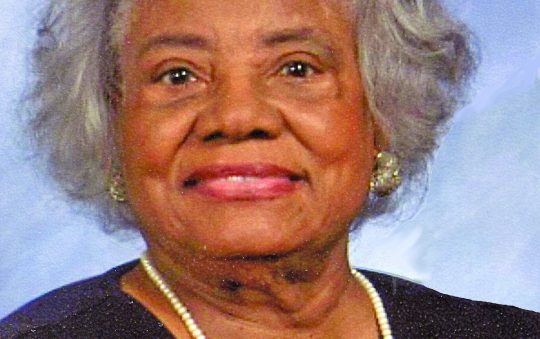
In June of 2015, the Los Angeles Board of Education unanimously approved a Resolution supporting Standard English Learners (SELs) and requiring that implementation include targeted resources to support SELs in all schools. Although this was actually a landmark decision, to my knowledge, the Resolution received little, if any, local media coverage. However, the Resolution is extremely important; it’s the first time the Los Angeles Unified School District (LAUSD) officially addressed the language needs of Black students. These students have been ostracized and demeaned simply because their home language differs from standard or academic English. (The Resolution joins existing English Language (EL) programs, including to Latino and other students whose primary language is other than English. It is critically important that there be a concerted, sustainable campaign by Black parents and Black leadership working together to ensure the Resolution is properly implemented.
Those groups and individuals interested in improving educational outcomes for Black children should understand the devastating impact of the neglect and degradation Black students have always suffered, and often simply because of the way they speak. Helping them means validating their home language as foundational for their learning standard/academic English.
The failure of public schools to properly educate Black students is indisputable; they have long languished at the bottom of virtually every measure of effective schooling. Yet, the Black community too has remained largely on the sidelines; its dominant response, has been silence.
Contributing to a lack of support for SELs is the chasm between middle-class and poorer Blacks; the former has virtually opted out of the continuing struggle for civil rights and the fight to improve the quality of education for Black students in traditional public schools. Many middle-class parents, especially, seek alternatives in private and charter schools which is understandable. But taking their children out of traditional schools contributes to failing traditional schools by draining funds and other resources, thereby weakening the political leverage of the remaining parents, many of whom are less sophisticated and less likely to effectively challenge or hold schools accountable. The problem is middle-class and poorer parent participation together is indispensable for holding local schools and school districts accountable. And if Black parents continue to pull their children out of traditional schools, the downward spiral of Black students in traditional schools will continue at the expense of those most in need. Reversing this trend requires the support of the broader Black community.
Blacks are among the world’s most resilient people, but also reflect a paradox: They have internalized the white majority’s values without full access to its benefits. This means Therefore, challenging the educational system is tantamount to challenging themselves because they do not have alternative values. They must return to ethical and moral values as opposed to prevailing individualism and materialism -the latter are contrary to Blacks own best interests. Unity necessary for forward progress also means developing common ground. This means parents and Black leadership must agree on what does, or does not benefit Black children.
As the foundation of culture and heritage, language is arguably most important in effectively educating SELs whose home language is aptly termed “unacceptable language” by Dr. Sharoky Hollie, author of “Culturally and Linguistically Responsive Teaching and Learning.”
The 1996 Oakland California Board of Education’s misunderstood and mislabeled “Ebonics Resolution” stressed the importance of language acquisition for Black students and offered a comprehensive solution to the institutional neglect they have suffered.
An excerpt from the Oakland School Board Resolution: “The superintendent shall immediately devise and implement the best possible academic program for imparting instruction to African American students in their primary language for the combined purposes of maintaining the legitimacy and richness of such language, whether it is known as “Ebonics,” “African Language Systems” or other descriptions, and to facilitate their acquisition and mastery of English language skills.”
Within days, the Resolution garnered national attention. Many argued that such attention represented tensions about race rather than the potential technical and educational merits of the Resolution itself. And much of the public debate focused on the absurd claim that Oakland USD intended to “teach Ebonics.” The basic issue is really about the legitimacy of Black cultural expression.
Common understanding and agreement on the validity of Black students’ “unaccepted language”, particularly among Black educators and linguists, is essential for getting school boards to adopt policy that affirms that principle. (LAUSD is currently working in that direction, primarily through its Access Equity and Acceleration Unit.) This is encouraging but Black students in general, continue to be denied focus and resources commensurate with their specific needs. Only sustained parent and community education, organizing and mobilization will generate sufficient pressure to force school boards to adopt policy that addresses the needs of students who speak “unacceptable languages.”
Efforts are underway to monitor the implementation of LAUSD’s SEL Resolution. For example, the Education Committee of the Black Community, Clergy and Labor Alliance (BCCLA) is partnering with LAUSD to better assist parents, teachers and administrators in helping to close the achievement gap for African American students and monitor the Local Control Funding Formula (LCFF) which is designed to allocate funds equitably to schools most in need.
It is critically important the Black community vigorously supports the legitimacy of Black students’ home language, constantly demand that school boards allocate adequate resources for SELs and adopt and implement culturally and linguistically responsive curricula throughout the entire school district.






